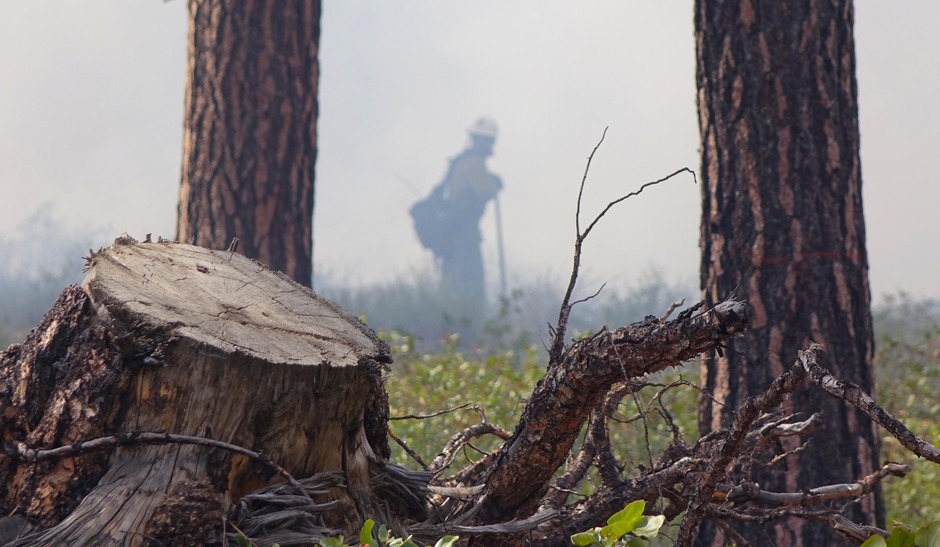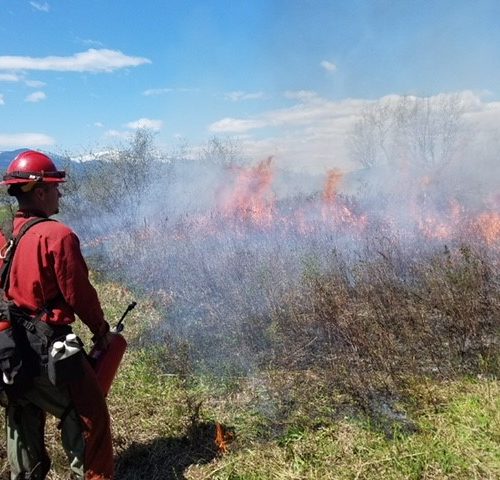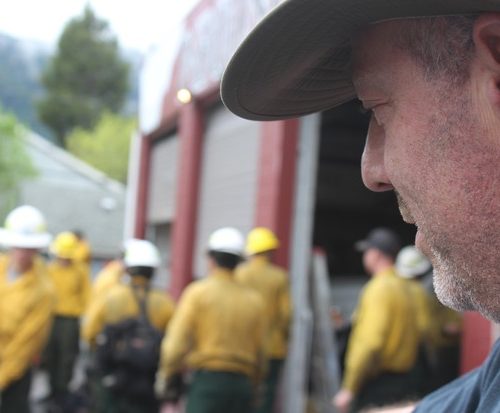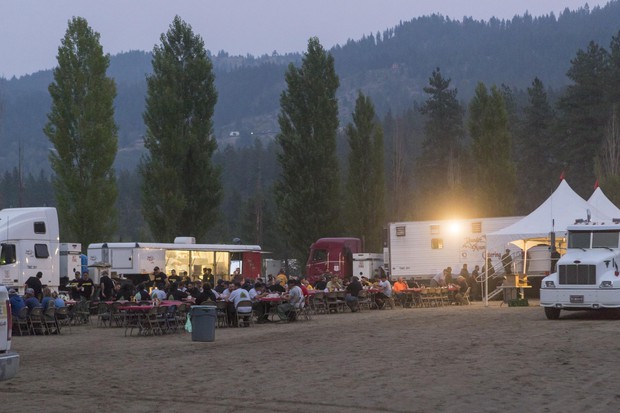
Washington Firefighter Quarantining With COVID; It’s A Test Of Safety Plan Ahead Of Wildfire Weather
Listen
A firefighter who helped put out a recent wildfire in north-central Washington has been diagnosed with COVID-19. It’s the third state Department of Natural Resources firefighter diagnosis this fire season.
In response, land managers are asking people to avoid starting fires to help keep crews safe.
The firefighter didn’t show any signs of COVID-19 while fighting the Anglin Fire near Tonasket, which was contained Aug. 1, and burned around 2,000 acres.
The Anglin firefighter contracted COVID-19 outside of the fire camp. He tested positive after he left the fire. The firefighter came into contact with 14 others, who have now been quarantined and aren’t showing symptoms right now, according to the DNR.
This year, fire camps have been kept smaller and more spaced out – to help prevent widespread outbreaks.
Agencies used contact tracing and say the diagnosis and quarantining won’t cause problems for wildfire response capabilities.
Worried About Safety
From the start of the coronavirus pandemic, fire managers worried about firefighter safety – and have put social distancing and sanitization guidelines in place. Managers have also worked out ways to keep correctional crews as socially distanced as possible.
The other two firefighters who are known to have tested positive for COVID-19 happened earlier in the fire season, a DNR spokesperson said Monday. Both developed mild symptoms and only had contact with DNR team members. No other cases were linked to either employee.
Now that fire season is in full swing, Washington Public Lands Commissioner Hilary Franz is asking people to be mindful when you’re outdoors to not spark a fire.
Please help reduce the spread of #COVID19 and prevent human-caused wildfires. This weekend, a DNR firefighter tested positive for COVID-19. While this does not pose a danger to immediate fire response, it’s a stern reminder that our firefighters risk their health to protect us. pic.twitter.com/Y0LaIkIDm8
— Hilary Franz (@Hilary_FranzCPL) August 10, 2020
“All it takes is a significant hot period, and the number of firefighters breaking out. It puts our firefighters at risk,” Franz told NWPB Monday. “Then on top of that, when you have a widespread outbreak, it makes it difficult for us to keep all of Washington safe from fires.”
There has been an increase in human-caused fires this season – many potentially side effects of people staying home working in their yards and going outdoors during the pandemic. Around 90% of fires are already human caused throughout the fire season, according to the DNR.
Franz said there has been an unprecedented use of public lands recently. For example, each weekend, visitors are exceeding normal high use times, like Memorial and Labor Day weekends.
“If you have more people using the lands, which we support, you have more risks if they are not taking the proper protocols to prevent fire … whether it’s a campfire, whether it’s target shooting, whether it’s driving and parking on dry grass,” Franz said.
Those actions can all start fires.
Critical Fire Weather
So far, the agency has responded to more than 1,000 wildfires this year, 632 of which have been “significant. Franz says that’s ahead of the 10-year average.
DNR has issued a statewide burn ban on all of the forestland under its fire protection. The ban will be in effect through Sept. 30, unless conditions change.
Forecasts show vegetation is primed to burn. August fire weather has kicked up, with dry lightning and strong winds.
The National Weather Service says a dry cold front will cause breezy winds Tuesday afternoon and evening, which could help drive any new or existing fires.
In an earlier interview, fire weather meteorologist Eric Wise said, “We kind of dodged a bullet with lower than normal amount of lightning in July, but human (fire) starts are always a threat. As people are getting out there and doing more recreational activities, there’s more opportunities for people to help introduce fire to the landscape.”
Related Stories:

With Fire Season In Full Swing, Corrections Crews Adapt To Pandemic Safety Measures
As wildfire season heats up, Washington fire managers are working out new ways for incarcerated people to help on the fire lines and stay safe during the coronavirus pandemic. Correctional crews have helped put out fires and work in fire camp kitchens for decades. And things are a little different this year.

Fire Camp Germ Spread Is Dicey In Normal Times. COVID-19 Could Rip Through Crews This Season
This year, fire camp could be as dangerous as the wildfires, and top Western managers are deep in planning how to make fire camps COVID-19 ready for fire crews. Hilary Franz is Washington’s commissioner of public lands. She says state, federal, tribal and local officials are trying to make fighting wildfires safe during a pandemic.
















